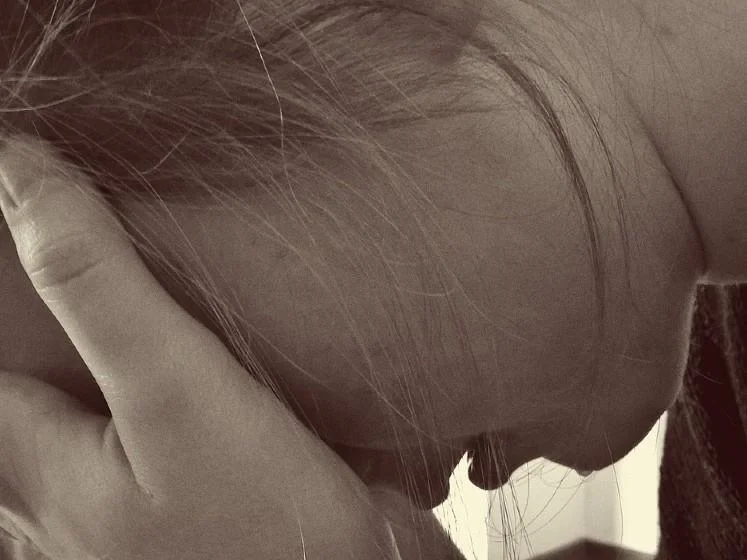Financial insecurity affects nearly half of UK adults

Large minorities of UK adults face financial, health, housing, and work insecurity, according to a pathbreaking new study led by LSE. Over the past decade, there has been a significant rise in financial insecurity, and in the proportion of the population experiencing multiple insecurities at the same time:
- In 2022/23, 47% of UK adult (28.3 million people) experienced financial insecurity
- This was sharply up from 29% or 16.7 million in 2014/15
- 9% (5.2 million) faced combined financial, housing and health insecurity, up from 6% (3.4 million) in 2014/15
- In 2022/23, 26% of adults experienced health insecurity, 27% experienced housing insecurity, 16% were affected by caring insecurity, and 36% of working-age adults faced work insecurity
The study finds that recent rises in insecurity were driven by austerity-era policies, a stretched welfare system, the erosion of public services, and the withdrawal of pandemic-era supports.
This new evidence poses a huge challenge for Rachel Reeves’ ‘securonomics’ vision, which sees security as a key goal, and as a necessary condition for individuals to get on, and for economic growth.
The report, Insecure Lives: The Growth and Impact of Multiple Insecurities, draws on the nationally-representative Understanding Society survey, and in-depth interviews with people experiencing multiple insecurities. It found:
- People facing multiple insecurities were 2–3 times more likely than average to report mental health issues such as strain, sleep problems, isolation and loneliness
- In 2022/23, 3 million people experiencing multiple insecurities reported feeling constantly under strain rather or much more than usual
- 2.5 million had lost sleep due to worry rather or much more than usual
People experiencing multiple insecurities told researchers about the impacts. Summer, a working mother of two, was facing imminent homelessness due to relationship breakdown. She said: "These last few weeks I feel ill. Like I just don’t feel great at all. I'm coming out in spots. My throat hurts. Like I feel so drained and so tired… Like people will say something to me and it will just not absorb." Winnie, a disabled mother of three children was living in a damp council home, waiting for support for her children’s special needs, and struggling to pay for food and heating. She said: "It has a massive impact on mental health… I feel like I’m constantly stressed… I never get a break, I never get a minute to myself."
Nine per cent of all UK adults experienced combined financial, housing and health insecurities, but some groups had much higher rates: 32% of people who were economically inactive because they were long-term sick or disabled, 28% of unemployed people, 27% of lone parents and 21% of adults living alone. Adults aged 35–44 were the most affected. People from deprived areas and from minority ethnic groups also had above average rates.
Researchers find that trying to deal with multiple insecurities could inhibit people’s ability to start work or move off Universal Credit. Christina was working a few hours a week, but she had bipolar disorder and depression, and responsibility for two young children. She said: "I feel that at the minute, working fulltime Is not a possibility… I’m overwhelmed enough with my kids and I’m giving them as much as I can."
However, work is no guarantee of security. 53% of working age people experiencing multiple insecurities were in work. Many faced low or unstable pay, poor conditions, and limited opportunities for promotion.
Policy recommendations
Insecurity has costs for the nation as well as for individuals. It hurts mental health, it promotes inactivity, it wastes potential and acts as a brake on growth.
The report argues that higher benefits, the end of benefit caps and the two-child limit, reduced use of benefit sanctions, more social housing, higher Local Housing Allowance rates, reduced waiting times for NHS and child special needs services, and improved childcare and social care, will help reduce insecurity.
Growth should be a priority, and could release resources to make life more secure. But growth must be paired with deliberate efforts to reduce volatility and uncertainty in people’s lives.
Research participant Yazarna called on the government to encourage employers to provide more jobs accessible to people with childcare responsibilities and mental health problems. Anih, Christina, Adam and Billy wanted more meaningful support to train and find work. Clara-Louise, Anih, Winnie, and Mad Cat Lady wanted to be able to volunteer as a more flexible alternative to work within Universal Credit.
The report explores policy to target insecurity: redesigning Universal Credit to make income more predictable, expansion of advice services and legal aid, low-cost credit such as through credit unions, social prescribing and support to navigate services, particularly through approachable, local community hubs.
Lead researcher, Prof Becky Tunstall said: "Tens of millions of British people are living with fears about being able to pay bills, to keep their jobs and homes, to maintain their families’ health. Millions are living with multiple insecurities at the same time. This affects their mental health, their ability to work, to plan and to support their children’s futures. We urgently need policy to build security and opportunity."
Read the report here: https://sticerd.lse.ac.uk/CASE/_NEW/PUBLICATIONS/abstract/?index=11618
Learn more about this reseach in the LSE Festival Exhibition, Visions for the future, on display from Monday 16 June - Thursday 3 July.